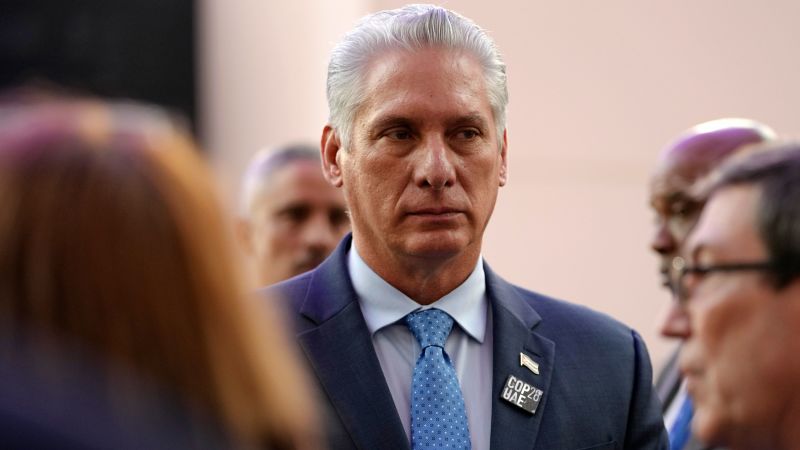As a snapshot of a nation struggling under the weight of multiple crises, Cuba, the picturesque Caribbean nation is currently witnessing some of the largest and most significant protests in its recent history. The poignant images of protesters filling the streets, fighting against the strain of shortages in food and power, offers an unprecedented insight into the escalating domestic issues plaguing the island nation. The situation is especially stark due to the rare nature of such public displays of discontent in the country, where the government maintains a strong grip over public expression and order.
Cuba, known for its revolutionary spirit and vibrantly rich culture, has been traditionally characterized by resilience. However, the current chain of power cuts and food shortages have strained this resilience to its breaking point. Periodic blackouts, sparse supermarket shelves, and long queues for basic necessities exhibit the dire state of Cuba’s economy and infrastructure.
The origin of these challenges lies in an intricate web of both internal and external complexities that Cuba is grappling with. Owing to its historical and political landscape, Cuba operates under a socialist model of economy where the state stanches control on most of the industries including the crucial agriculture and energy sectors. Its economy has been in a downward spiral, worsened by a combination of inefficient state-run enterprises, lack of foreign investment and the stifling U.S sanctions.
Cuba’s economic woes were exacerbated last year by the COVID-19 pandemic, as it brought the all-important tourism, a significant source of foreign exchange, to a standstill. Moreover, the energy sector was hit when Venezuela, which provided cheap oil to Cuba, descended into its own economic crisis.
The power problem in particular, which involves a series of long-lasting power cuts, provides a clear picture of the current resource problem. Oil-based power generation makes up a large portion of Cuba’s national grid, and this has been severely affected by the situation in Venezuela coupled with US sanctions targeting oil shipments to the island. On the other hand, food shortages can be traced back to inefficiencies in the state-run agricultural sector, the effects of an unusually rainy season on crops and decreased imports due to lack of foreign currency.
Amidst these adversities, people’s frustration is on the rise as they wrestle with long hours of blackouts, empty pots in their kitchens and washed-out hopes. What is perhaps more significant about these protests is their rarity. Given the stringent government controls on dissent and public gatherings, these demonstrations are likely a barometer of more widespread desperation than has been seen in previous downturns.
Moreover, aided by the increasing accessibility of the internet, images and news of these protests are spreading both domestically and internationally, garnering attention and support for the aggrieved citizens. The demonstrations, incorporated with chants demanding political change along with the resolvent of basic services, are indicating a paradigm shift in the Cuban bureaucratic landscape.
The Cuban protesters’ impassioned plea for necessities, ringing through city streets, has transcended boundaries, drawing global attention to their plight amidst power cuts and food shortages. Only time can tell what changes these winds of defiance might bring, but for now, the world watches, as this rare surge of protests in a nation that has long been characterized by its resilient spirit reflect a profound need for systemic change.




